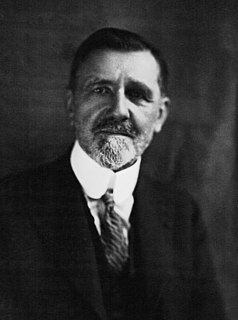A Quote by Marilyn Ferguson
By definition, revolutions are not linear, one step at a time, event A leading to event B, and so on. Many causes operate on each other at once. Revolutions shift into place suddenly, like the pattern in a kaleidoscope. They do not so much proceed as crystallize.
Related Quotes
If an event can be produced by a number n of different causes, the probabilities of the existence of these causes, given the event (prises de l'événement), are to each other as the probabilities of the event, given the causes: and the probability of each cause is equal to the probability of the event, given that cause, divided by the sum of all the probabilities of the event, given each of the causes.
Before, revolutions used to have ideological names. They could be communist, they could be liberal, they could be fascist or Islamic. Now, the revolutions are called under the medium which is most used. You have Facebook revolutions, Twitter revolutions. The content doesn't matter anymore - the problem is the media.
Don't be a perfectionist, because perfectionists often spend too much time on little differences at the margins at the expense of other big, important things. Be an effective imperfectionist. Solutions that broadly work well (e.g., how people should contact each other in the event of crises) are generally better than highly specialized solutions (e.g., how each person should contact each other in the event of every conceivable crisis).
I'm not a big believer in revolutions. What people call revolutions in technology were more of a shift in perception - from big machines to PC's (the technology just evolved, fairly slowly at that), and from PC's to the internet. The next "revolution" is going to be the same thing - not about the technology itself being revolutionary, but a shift in how you look at it and how you use it.
In the political, the social, the economic, even the cultural sphere, the revolutions of our time have been revolutions "against" rather than revolutions "for"... On the whole throughout this period the man--or party--that stood for doing the positive has usually cut a pathetic figure; well meaning but ineffectual, civilized but unrealistic, he was suspect alike to [by both] the ultras of destruction and the ultras of preservation and restoration.
My favourite way of getting ready for a red carpet event is to turn the hair and makeup time into a bit of a pre-party. I use the same artists all of the time, so we know each other so well - so it's a 'hanging with friends' session. Music, lots of laughing, and food - because you must eat before the event.




































